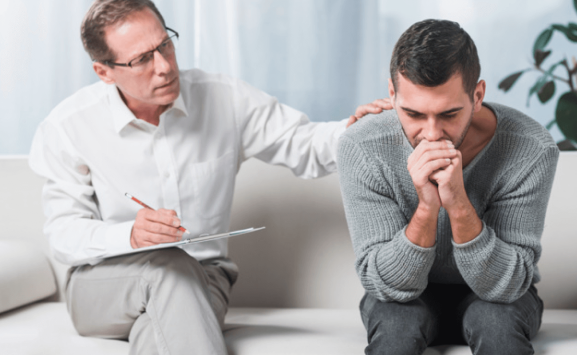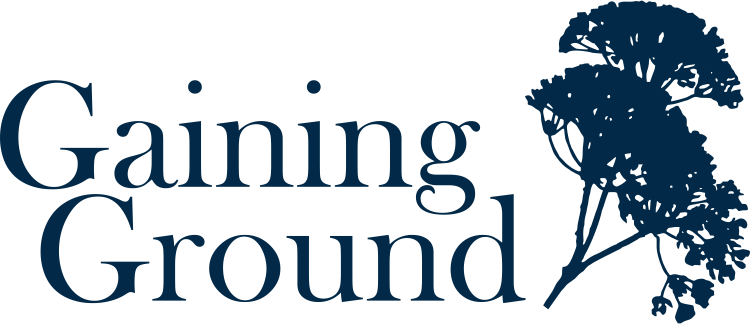Modern Queer Pain

Nadi Badilla, MHC
The pain of being a queer person today shows up in the way I carry myself. I’ve learned to walk with a confident stride, but the fear is still there and comes out at the worst times, manifesting as eyes on the ground, messy hair covering my face, and shoulders ready to knock down anyone too close. I am disgusted that I’ve ever had to say, “No, you do not need to know about my partner’s genitalia – that is really inappropriate to ask”. What difference does it make? Now I’m single and wonder if I’m safer alone as a gender nonconforming person or with a partner who looks just like me.
Ultimately, that’s what it comes down to – safety. The anxious bugs who crawl under my skin slither faster when I remind them heterocisgender people need not worry about their safety in this regard. I cannot bring my full self into expression without worrying about the potential consequences of another’s reaction to my truth because it has been shown time and time again that these reactions are dangerous, fueled by not simple intolerance, but by hate. They see my leg hair, armpit hair, and whimsical intimacies being shared between myself and my like-minded friends and they see what they do not allow themselves to be – free, bursting with love. They see expansive beings who have accessed the divine balance of masculinity and femininity, recognizing, analyzing, and ultimately rejecting the toxicity this society has created around heteronormativity and the gender binary. They see a reflection of themselves in our eyes, an unfamiliar reflection, but one so terrifyingly profound they have created laws to eliminate us. They see our liberation and their own shackles grow heavier, reminding them that the only way they know how to feel power is by taking someone else’s.
The pain of being a queer person feels nauseating when I consider the oppression of my people is funded by the very system that feeds me. I don’t want to play along. The pain of being a queer person knocks me to my knees some days, but does not keep me there for good. I am proud of being the mirror this society needs. Queer people are bright, warm, lights of love, resilience, kindness, compassion, creativity, playfulness – I could go on forever. The glowing luminosity of queer people cannot be suppressed by the darkness of the system. We elevate together every single day. We do not stop supporting one another, and that infinite love is something the iron hand does not hold. I have high hopes, okay.
The biggest pain of being a queer person is not so much in my own experience these days, but in witnessing the brilliant, beautiful, enlightened members of this community be erased and forgotten. To those spirits who were stolen and still dance in my heart, you are not forgotten. The pain of being a queer person is what feeds the fire in me to stand up against the injustices brought onto the realest people of this society. The weight is heavy, and so I want to carry it for those who need to lie down, for the youth, for anyone who doesn’t want to walk alone – you are not alone.
Kyle Fullmer, LMHC
Pride month has ended for 2022, but I can’t ignore the ongoing struggles faced by people within the LGBTQ+ community. When I work with queer clients there are often painful reminders of our upbringing and the heteronormative culture at large that play a role in queer mental health.
A modern initial understanding of attachment theory teaches us that a universal need exists within each human; each of us are wired to establish and maintain safe and secure connections with those around us. Humans innately desire a sense of belonging, and this desire exists from birth and infancy.
Queer people have an unfortunately unique relationship with the concept of attachment, which is shaped by being “othered” in a heteronormative world. That is, from the moment a queer person recognizes their own queer identity, they know that they exist in a world that doesn’t always accept them unconditionally. In that moment, and henceforth, LGBTQ+ identities are burdened with the weight of uncertainty as to whether or not they are accepted by those around them, and could even lead some to question the worth of their existence.
Most people typically understand that LGBTQ+ people experience systemic/institutional oppression and rejection as well as inter-relational oppression and rejection from heterosexual people, as described above. To make matters worse, their exists an idea called “intra-relational oppression.” This means that queer people don’t simply experience detachment and rejection from cisgender, heterosexual people, but from other queer people as well. This could be understood with an example of one person saying “you’re not gay enough for me” or “you’re too gay for me” from other queer people.
We as a community, together, can recognize that the pain we’ve endured from being systemically rejected doesn’t have to exist as an intra-relationally repeated and ongoing pain. We can end a spiraling of hatred towards people within our own community, and this requires each and every one of us to recognize our biases and internalized homophobia, and reject the notion that any person could be rejected for the ways in which they choose to present and display their sexuality. The cycle of “hurt people hurting people” starts with you and I making a conscious choice in every moment to foster healing and flourishing as a community. Pride for ourselves can exist outside of pride month.
Recommended Further Reading:
The Epidemic of Gay Loneliness, Michael Hobbes, Huffington Post
The Will to Change, bell hooks
Queer Attachments: The Cultural Politics of Shame, Sally R. Munt
We Look Forward to Welcoming
You in Our Practice

-
Mo – Fri11 am – 7 pm
.


